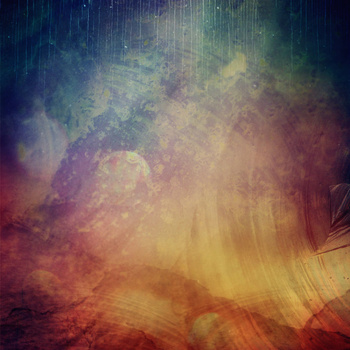In his 1970 essay The Electronic Revolution, William S Burroughs posited the theory that tape recordings could be used to cause supernatural occurrences. He was convinced that the playback of doctored, cut-up recordings had the potential to prompt social unrest, riots, maybe even a rip in the space/time fabric; he even believed that he had himself put a curse on an espresso bar that had given him poor service by taking audio recordings and photographs of the bar, then playing the recordings back in their vicinity over a brief period.
Whether or not you buy that line (and there’s certainly more than enough reason to be sceptical), Burroughs does propose some interesting philosophical questions about the power behind the now-banal concept of sampling, questions which (if the method’s ubiquity is any indication) have long since been cast aside. Sampling displaces the electronic record of long-gone moments in time, jumbling them to suit the purposes of the arranger; while there’s typically not any supernatural intention in doing so, might there not still be supernatural effects? If one were to pull a sample from a musical recording that was intended to be sacred, and then proceed to use bits and pieces of said recording for secular ends, does the sampler insult the sacred nature of the original recorded event, perhaps even curse it?
Stuart Chalmers’ Imaginary Musicks Vol. 1 is an assemblage of samples culled from cassettes of ‘world’, classical, and modern electronic music, juxtaposed in a lo-fi, musique concrète fashion. It’s a cool-sounding record: the results are disorienting but concise, and their construction is such that it’s often hard to tell which sources are yielding which samples. The information provided to accompany the release is scant, but there’s certainly nothing to indicate that these blurry compositions come with any malevolent intentions.
Yet I repeat: might there not still be supernatural effects? I know I’m teetering on the brink of Dan Akroyd territory here, and I’m certainly not trying to call Chalmers out, but seriously: what happens when you take traditional folk musics, which are often performed for spiritual purposes, and cut them up for fun? I’ve done it myself, so I can vouch for it being a fun thing to do, but I often feel in doing so that I’m dabbling in forces I don’t understand. It’s hard for me to fully see past that when listening to Chalmers’ constructions.
Chalmers is far from the first person to manipulate foreign folk music to make something new. Henry Jacobs, an early progenitor of sampling, frequently manipulated field recordings to his own ends, with nominally similar results, as far back as the late 1950s; hip hop has been a grab bag of non-western sounds basically since its inception. Brian Eno and Jon Hassell’s (recently reissued) Fourth World Music Vol. 1: Possible Musics worked with the same conceit that Chalmers extends here, making familiar sounds alien via unusual juxtapositions. Hell, even that godawful Moby record with the American folk and blues samples is in the same conceptual ballpark. All of this repurposed, recontextualised sound is the natural postmodern runoff of the mass communication age, but with Burroughs’ notions fresh in mind, those cultural inevitabilities start to seem downright ominous. You probably needn’t ponder such concepts to appreciate Imaginary Musicks Vol. 1, but it doesn’t hurt.
<div class="fb-comments" data-href="http://thequietus.com/articles/16820-stuart-chalmers-imaginary-musicks-vol-1-review” data-width="550">


